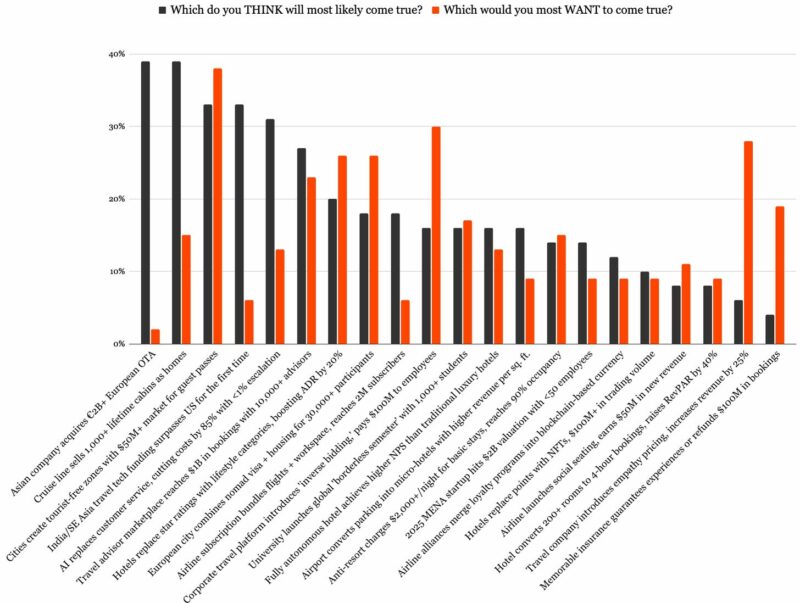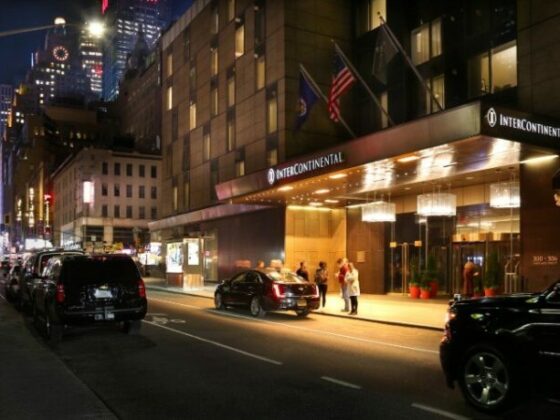
In this blog post, we’ll examine why traditional budgeting fails to deliver real value to owners and how a more flexible, data-driven framework can drastically improve return on investment. By shifting from a static, once-a-year exercise to continuous refinement, hoteliers can make each resource count where it matters most—on the bottom line.
Why Budgets Are Already Strained
Hotels draft budgets months ahead of the fiscal year, often based on historical data and best guesses about the future. Unfortunately, the reality on the ground evolves much faster, and budgets quickly become misaligned. Here are some key factors:
- Market Shifts: Demand patterns can surge or drop unexpectedly due to economic shifts, evolving travel preferences, and ongoing global events. Additionally, inflationary pressures might lead to sudden cost increases, forcing hotels to scramble and adjust rates and expenses to maintain profitability.
- Operational Changes: Constant staffing challenges—from recruitment struggles to retention and training—cause significant fluctuations in labor costs. Add in shifting guest expectations (e.g., contactless services, personalized experiences), and hotels must rapidly invest in new technology or retrain teams, none of which is adequately captured in a static, once-a-year budget.
The Risks of Skipping Budgeting Altogether
Despite its shortcomings, budgeting remains crucial in hotel operations. Skipping budgeting altogether causes significant discomfort for conservative hoteliers and owners. However, each risk can be managed with a more dynamic approach:
Lack of Direction
- Risk: Without a formal budget, teams lack clear benchmarks and targets, making it hard to track performance and identify priorities.
- Mitigation: Set relative targets, such as KPIs like flowthrough percentage. Instead of committing to fixed annual goals, regularly update revenue and profit forecasts using real-time market data and operational insights.
Missed Alignment
- Risk: Budgeting sessions are an essential forum where department heads, revenue managers, and other stakeholders align on financial goals. Without this formal structure, miscommunication and siloed decision-making can thrive.
- Mitigation: Replace annual budgeting meetings with shorter, more frequent strategy sessions focusing on increasing total revenue and improving processes to minimize costs. Share updates on revenue, costs, and market trends at least monthly or quarterly so all teams stay on the same page.
Investor and Ownership Expectations
- Risk: Owners, investors, and lenders typically expect a clear ROI roadmap. Eliminating budgeting could erode trust and hinder future financing options.
- Mitigation: Provide stakeholders with a flexible “roadmap” that includes updated forecasts, scenario analyses, and monthly or quarterly progress reports. Demonstrate how agile planning can be more accurate and transparent than rigid annual budgets.
Embracing Dynamic Budgeting
Rather than relying on a single, static plan, a dynamic budgeting approach keeps pace with ever-changing market and operational conditions. Here are key components to consider:
Continuous Re-Forecasting
- Don’t wait until year-end to update financial plans. Instead, regularly revise revenue predictions and expense projections based on real-time data.
- Treat your revenue forecast as the driver of cost decisions, particularly labor costs, so you can quickly align resources when demand shifts.
Data-Driven Decisions
- Implement a BI tool to take advantage of historical trends, live market intelligence, and forward-looking analytics.
- With up-to-date insights, a hotel can confidently direct marketing spend, staffing levels, and operational investments to where the highest returns and flowthrough can be achieved.
Collaboration and Transparency
- Bring department heads together more frequently—monthly or weekly—to review data, discuss emerging trends, and adjust tactics.
- Encourage each team to share insights from the guest journey. Sharing can help identify opportunities to sell more to each guest while ensuring guest satisfaction remains a priority. It can also improve processes to minimize costs.
By continuously tying operational costs to the latest revenue projections and focusing on the entire guest experience, hotels can maximize both profitability and guest satisfaction. This responsive, data-informed mindset makes a hotel “dynamic.”
Conclusion
Let go of the idea that budgeting is a one-time, annual task. Instead, implement dynamic processes at the beginning of the year, well before the usual budgeting cycle. By using tools and frameworks that are better than old methods, your teams can gain valuable experience, improve best practices, and be fully prepared when budgeting season comes around again.
Call to Action
Move swiftly to integrate continuous forecasting, data-driven decision-making, and ongoing collaboration. Find and implement a hotel business intelligence tool that will give you insights to improve your revenue and profit. As Charles Darwin famously noted, “It is not the strongest of the species that survives, nor the most intelligent that survives. It is the one that is the most adaptable to change.” In the hospitality industry, the winners are those who adapt fastest to evolving conditions.
Long-Term Benefits
Adopting a flexible approach to financial management helps hotels keep up with changing market demands, boosting profits and guest satisfaction. By staying agile, your hotel gains a strategic edge, allowing you to thrive before the competition reacts.







